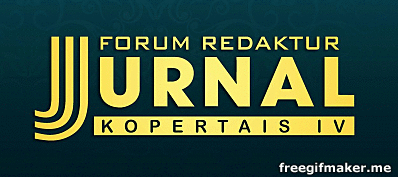EXTENSIVE READING: WHAT, WHY, AND HOW?
Abstract
The best way to improve our knowledge of a foreign language is to go and live among its speakers. The next best way is to read extensively in it (Nuttal, 1982). Current literature points to the importance and benefits of extensive reading. Extensive reading provides contextualized clues for better reading comprehension (Krashen, 1982), and substantial linguistic input (Bell, 1998) needed for language development. Several studies have found a correlation between extensive reading and specific linguistic skills including breadth of reading choices, improved writing skills, ease in oral communication, and improvement in other aspects of language. This paper briefly tries to describe the nature of extensive reading, the reasons why extensive reading is important, and how is the best practice of extensive reading in EFL classroom.References
Bamford, J., & Day, R. R. Extensive reading: What is it? Why bother? Journal of The Language Teacher, vol. 21. 1997.
Bamford, J. and Richard R. Day. Extensive Reading Activities for Teaching Language. Cambridge: Cambridge University Press. 2004.
Bell, T. Extensive reading: Why? and how? The Internet TESL Journal, 6 (12). Retrieved from http://iteslj.org/Articles/Bell-Reading.html. 1998.
Cho, K-S. & Krashen, S. Acquisition of vocabulary from the Sweet Valley Kids series: Adult ESL acquisition. Journal of Reading, vol. 37. 1994.
Coady, J. L2 Vocabulary Acquisition through Extensive Reading. In J. Coady & T. Huckin (Eds.), Second Language Vocabulary Acquisition. Cambridge: Cambridge University Press. 1997.
Day, R.R., & Bamford, J. Extensive Reading in the Second Language Classroom (4th ed.). Cambridge: Cambridge University Press. 2002
Extensive Reading Foundation. Guide to Extensive Reading. http://www.erfoundation.org/ 2011.
Fry, E. Ten Best Ideas for Reading Teachers. In E. Fry (Ed.), Ten Best Ideas for Reading Teachers. Menlo Park, CA: Addison-Wesley. 1991.
Goodman, K. ‘The Reading Process’. In Interactive Approaches to Second Language Reading. Carrell, Devine and Eskey (eds). New York: Cambridge University Press. 1988.
Grabe, W. & Stoller, F. Reading and Vocabulary Development in a Second Language: A Case Study. In J. Coady & T. Huckin (Eds.), Second Language Vocabulary Acquisition. Cambridge: Cambridge University Press. 1997.Grabe, W. & Stoller, F. Teaching and Researching Reading. Harlow, UK: Longman. 2002.
Grabe,W.& Stoller. Reading for Academic Purposes the ESL/ EFL Teachers’. In Celce & Murcia (ed), Teaching English as a Foreicn Language. (3rd ed). Boston: Heinle & Heinle. 2002.
Hedge, T. Using Readers in Language Teaching. London: Macmillan Publishers Ltd. 1995
Hill, D., and Holden, S. (Eds). Language Teaching: 1988 Milan Conference. Organized by The British Council. 1995.
Hitosugi, C. I., & Day, R. Extensive Reading in Japanese. Reading in a Foreign Language [On-line]. Available at: http://www.NetLibrary.com. 2004
Horst, M. Learning L2 Vocabulary through Extensive Reading: A Measurement Study. The Canadian Modern Language Review. 2005.
Hu, M., & Nation, P. Unknown Vocabulary Density and Reading Comprehension. Reading in a Foreign Language. 2000.
Huckin, T. & Coady, J. Incidental Vocabulary Acquisition in a Second Language. Studies in Second Language Acquisition, vol. 21. 1999.
Krashen, S. Principles and Practice in Second Language Acquisition. Englewood Cliffs, N.J.: Prentice Hall. 1982.
Pigada, M. and Schmitt, N. Vocabulary acquisition from extensive reading: A case study. Reading in a Foreign Language. Vol. 18, 2006.
Nation, I. S. P. Learning Vocabulary in Another Language. Cambridge: Cambridge University Press. 2001.
Nuttall, C. Teaching Reading Skills in a Foreign Language. London Heinemann Educational Books. 1982.
Nuttall, C. Teaching Reading Skills in a Foreign Language (2nd ed.). Oxford: Heinemann English Language Teaching. 1996.
Thornbury, S. How to Teach Vocabulary. London: Longman. 2002.
Waring, Rob. “Getting an Extensive Reading Program Goingâ€. Language Magazine December 2003. 7 May 2007. 2007.
Widdowson, H. G. Exploration in Applied Linguistics. Oxford: Oxford University Press. 1980.
Copyright (c) 2016 Al Hikmah: Jurnal Studi Keislaman

This work is licensed under a Creative Commons Attribution 4.0 International License.
Hak Cipta dari artikel yang diterima oleh Al Hikmah: Jurnal Studi Keislaman bisa disebarkan untuk publik





